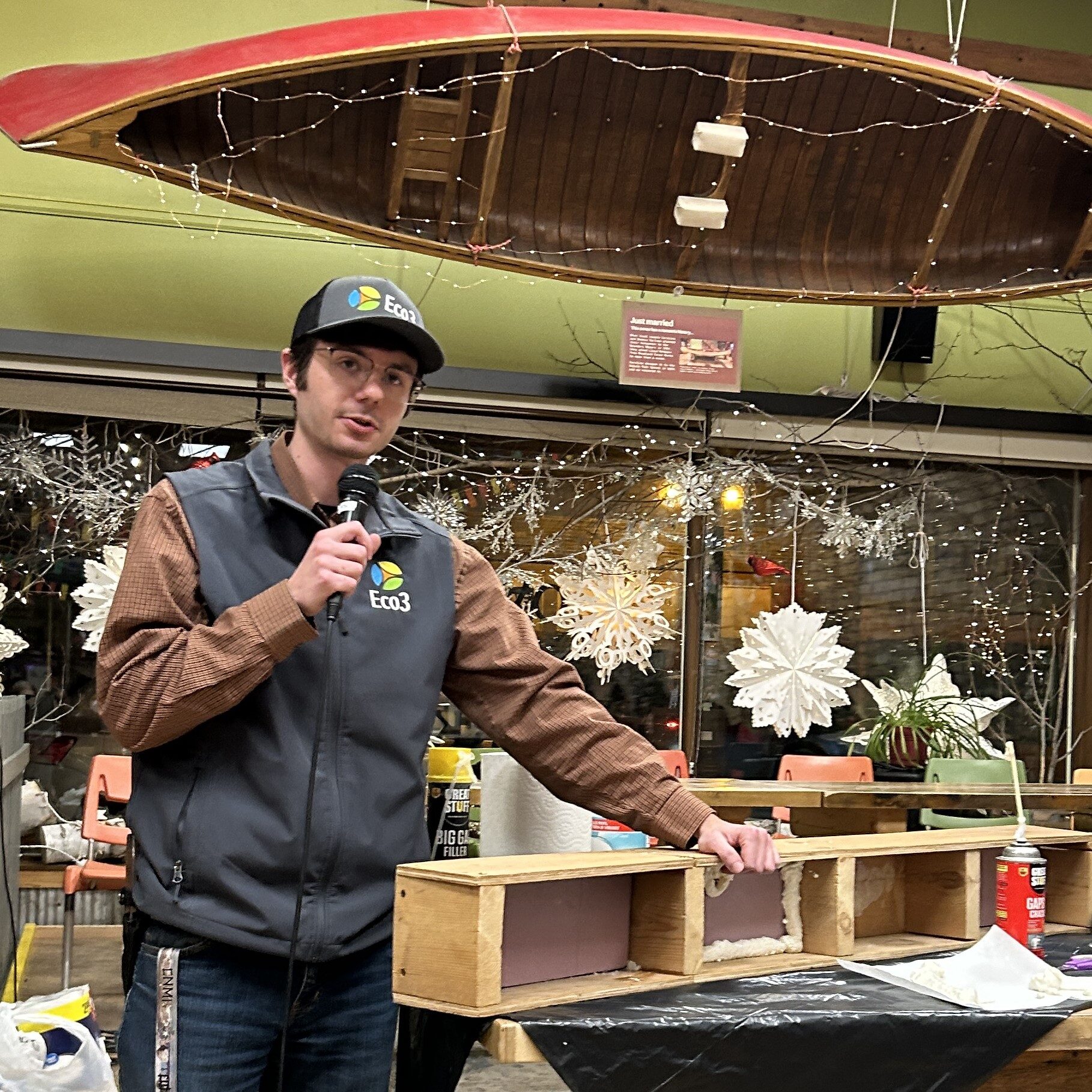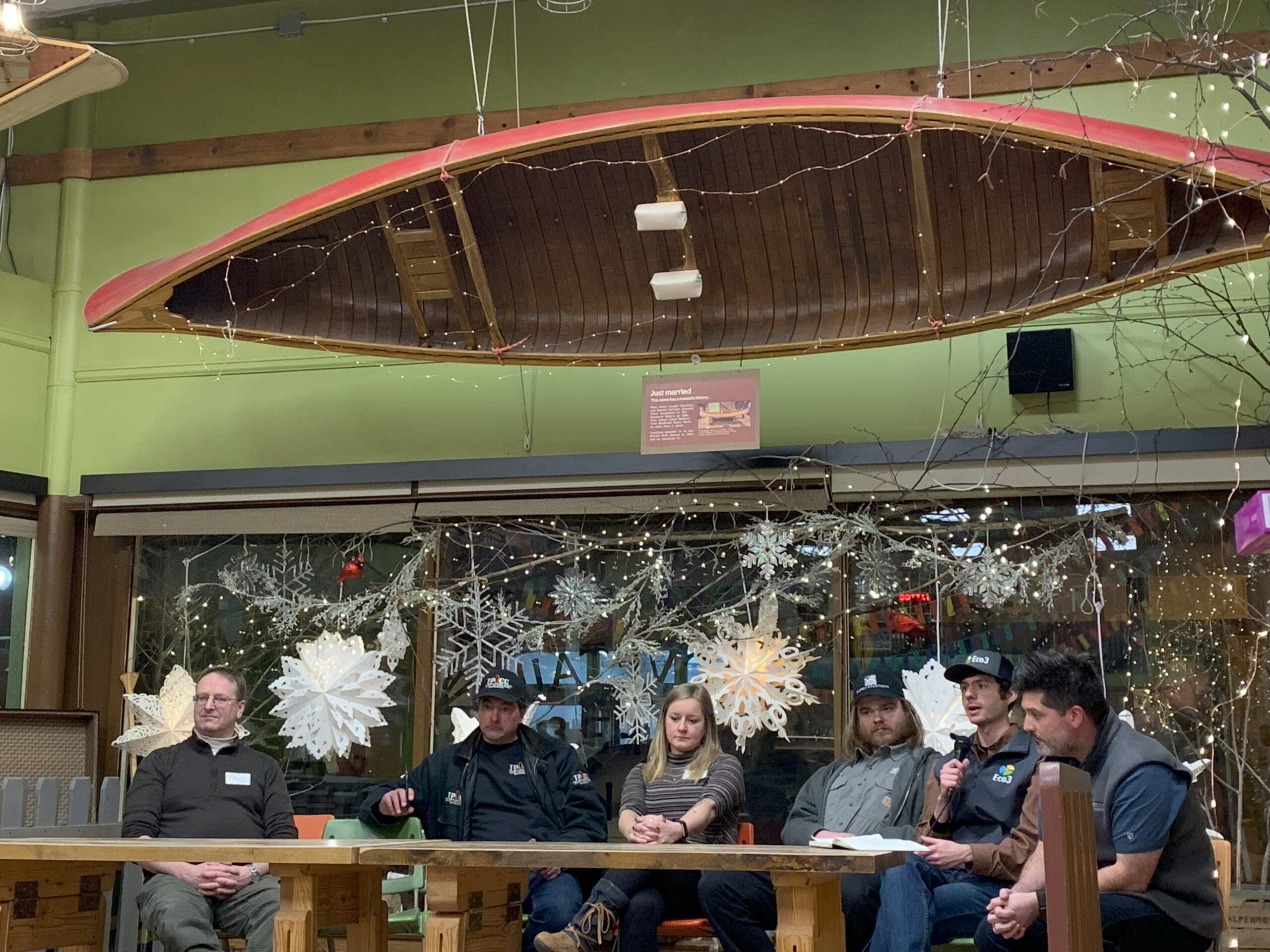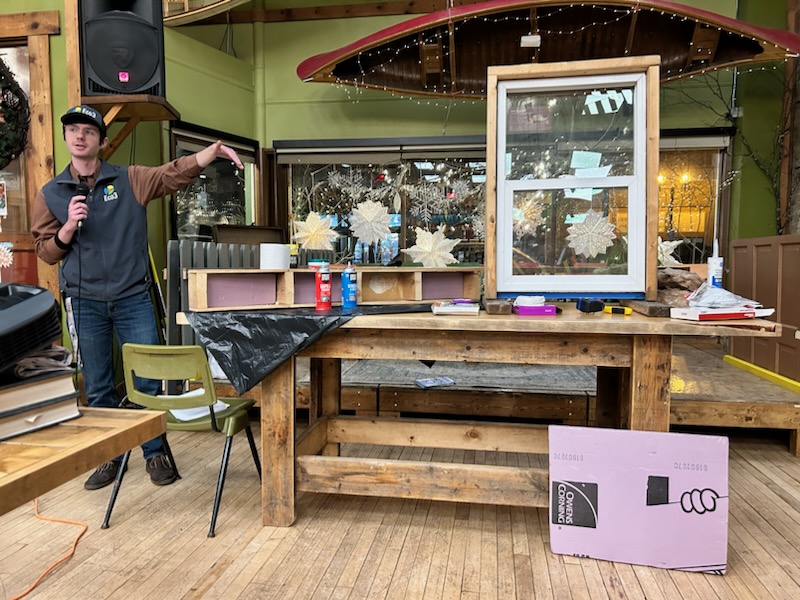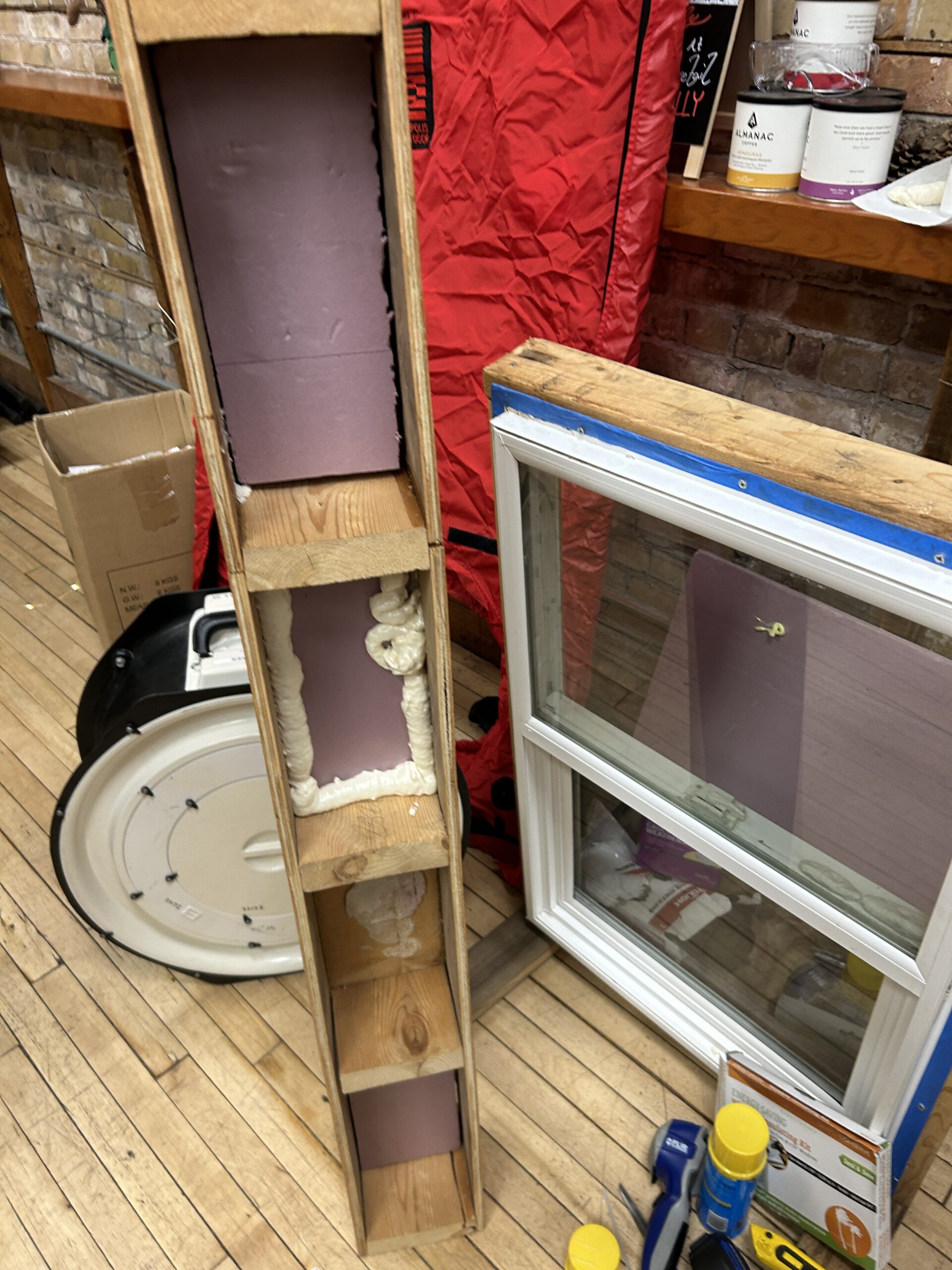

This winter and spring, the City of Duluth is hosting a workshop series called Sustainable Duluth. Each workshop is designed to educate the community on simple ways to promote efficiency and sustainability in the home. The workshops will be held on the third Thursday of each month, at 6:00 p.m., at Dovetail Cafe & Marketplace. Ecolibrium3 has long supported the City in sustainability efforts, and we are happy to contribute to this workshop series.
The first workshop was held Thursday, January 18 on the topic Clean Heat. Cameron, our Community Energy Transition Specialist, presented and sat on the panel of experts, sharing his expert insight on home energy audits. He explained that audits include looking for health concerns or safety hazards, assistance in finding drafts and leaks, utility bill consultation, checking appliance efficiency, and an overall assessment of the property. Cameron also demonstrated some tools of the trade: the infrared camera and the blower door. The infrared camera reveals areas where heat may be escaping, such as leaky windows or uninsulated sections in walls or ceilings. The blower door is used to check how leaky a home is overall. Cameron explained how the blower door software measures this and compares it to current building codes. All this information, he explained, is then compiled into a report that can be used to plan and prioritize updates to your home. This can also help with planning for major efficiency improvements, like installing an air-source heat pump.
Attendees showed great interest in the hands-on demonstrations as well. With the help of volunteers from the audience, Cameron demonstrated how to insulate a single-pane window using rope caulk, and how to insulate a rim joist using simple materials from a hardware store. Each process took just a few minutes.
The workshop also included presentations from other organizations, and a discussion with a panel of experts.



Although these are simple updates, Cameron emphasized the importance of getting an energy audit before starting on DIY work. Starting with a prioritized, thorough plan from a professional will help you avoid health hazards and work efficiently. After Cameron’s presentation, the room buzzed with questions and discussion. It was a great reminder that even the simplest winterizing upgrade can come with complications; every home is different, and there are many different products to choose from. Working with an energy expert is the best way to start your home energy journey.
The next workshop will be February 15, 6:00 p.m., at Dovetail Cafe. The topic is “Funding: Learn How to Utilize Federal, State, and Local Incentives to Save Money on Clean Energy.” We recommend this workshop to anyone interested in learning about rebates and tax credits available through the Inflation Reduction Act as well as state and local programs. Many thanks to the City of Duluth Sustainability Office for hosting this workshop series!
In the Media:
Duluth Folk School, City host sustainability series